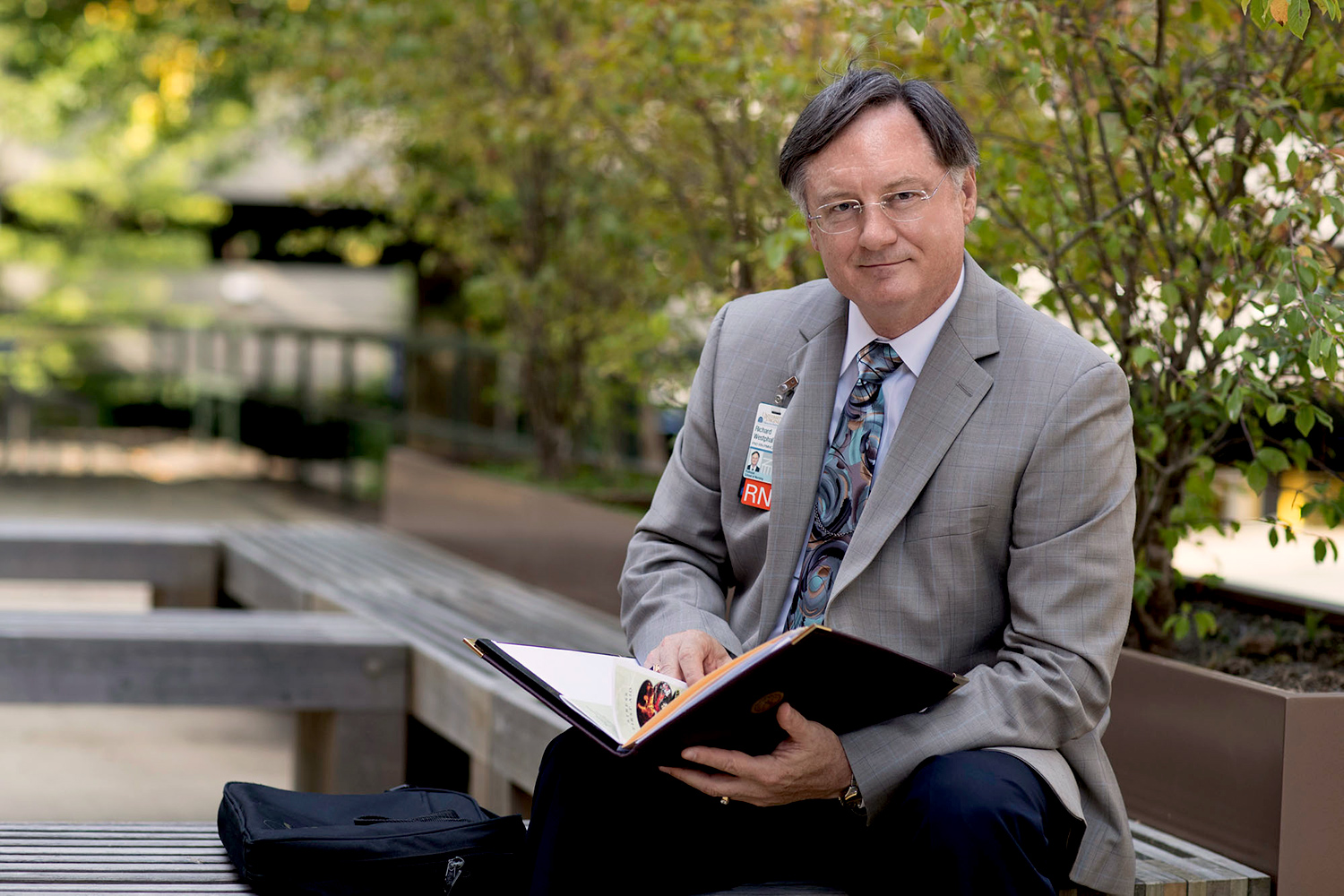On Sunday, 15 years after the Sept. 11, 2001 terror attacks, Americans will flock to memorial services throughout the country to honor those who lost their lives and to celebrate the heroes who fought for, and continue to protect, our freedom.
The City of Charlottesville will hold its remembrance ceremony at 1 p.m. at the Sprint Pavilion. Richard Westphal, a professor in the University of Virginia’s School of Nursing, will give the keynote speech.
Westphal, a former military nurse and U.S. Navy captain, has more than 33 years of active-duty service and served through three wars. Upon earning his Ph.D. in nursing from UVA, he was instrumental in developing the Navy’s psychological health and traumatic brain injury programs, and his work continues to focus on identifying and coping with stress injuries – psychological traumas that affect a person’s mental health – particularly in the realms of military and law enforcement.
Westphal said American citizens continue to feel emotional and psychological effects of 9/11, adding that communities throughout the United States can benefit from learning to deal with the stress injuries that were induced by the attacks.
“The theme of this year’s ceremony is to remember, reflect and honor,” Westphal said.
“We have individuals here at the University and within the community who lost loved ones in the attack and throughout the 15 years of war, so this is a time for us to come together to remember, to reflect mindfully as a community and to begin the dialogue of honor that allows us as a community to move forward.”
Westphal spoke with UVA Today about the importance of recognizing the lasting stress injuries caused by 9/11 and how having open discussions about the topic can help those injuries heal.
Q. What did your work the Navy entail?
A. My specialty area is psychological and mental health nursing, so I focus on psychological trauma. The work I did for the military and for the Department of the Navy was to lead the development of a peer support program called “stress first aid.”
Stress first aid is very similar to other types of first aid, in that it is intended to recognize that there’s an injury, start early treatment of injuries and get the person suffering from the injury to a higher level of care if needed. In 2012, the National Fallen Fire Fighters Foundation picked up stress first aid as a peer support model.
Q. How would you describe your role as a mental health nurse?
A. One way to think of my role is that I’m the nurse’s nurse. I take care of caregivers so caregivers can take care of others. I’m part of the “Be Wise” team at the Health Center, exploring how we can develop resources for health care professionals so that they can recognize when they have a stress injury and promote recovery. That translates to the work I do with the local fire squads, emergency medical services and law enforcement in developing peer support.
Q. Why is it important to apply that first aid model to military members and first responders?
A. In 2014, the Department of Defense conducted a study and identified that about 1 percent of the U.S. population was qualified and had the aptitude to work in the military. When you take a look at first responders, they’re cut from that same cloth of American fabric. There’s something systematically different about people who choose to run toward danger and who will ignore their own safety to help others.
But the very traits that allow first responders to be who they are are also the traits that prevent them from getting help. They are focused on taking care of others, but aren’t always good at taking care of themselves.
I’ve found that it’s important to develop a culturally competent model for military members, and the translation of this model to other first responders has been very seamless.
Q. How do you teach that model to others?
A. What I teach people is not how to talk to each other, but what they need to talk about. There are thousands of daily hassles that won’t derail a life, but there are four specific types of stress injuries that will: life threat or trauma, loss, inner conflict and fatigue. These four sources of stress injuries interfere with five essential human needs: cover, calm, connectedness, competence and confidence.
The work I do with military members and emergency services personnel is centered on these themes. So, part of stress first aid is training peers how to recognize when an injury has occurred and someone is in distress.
Q. What does it mean to remember, reflect and honor the events of Sept. 11, 2001, and why is it important that we do so?
A. When we talk about remembrance in relation to 9/11, most people remember where they were at that time, and that creates traumatic imagery. For some, that memory represents a stress injury.
When we reflect, that allows us to think that memory through. Who were the people who died? Who are the people who survived? What is unique about those first responders who were involved?
Then it’s important for us to honor those individuals and those who have been lost and think about what we have learned from that experience.
Fifteen years after the 9/11 attacks, we have an essential opportunity before us to have a dialogue about who we are as a people and as a culture and what our hope is for the future. If we don’t have that mindful dialogue, then we are left with still reacting to the memory of 9/11 versus honoring lessons learned and moving forward.
Media Contact
Article Information
September 7, 2016
/content/remember-reflect-and-honor-nursing-professor-lead-911-ceremony

